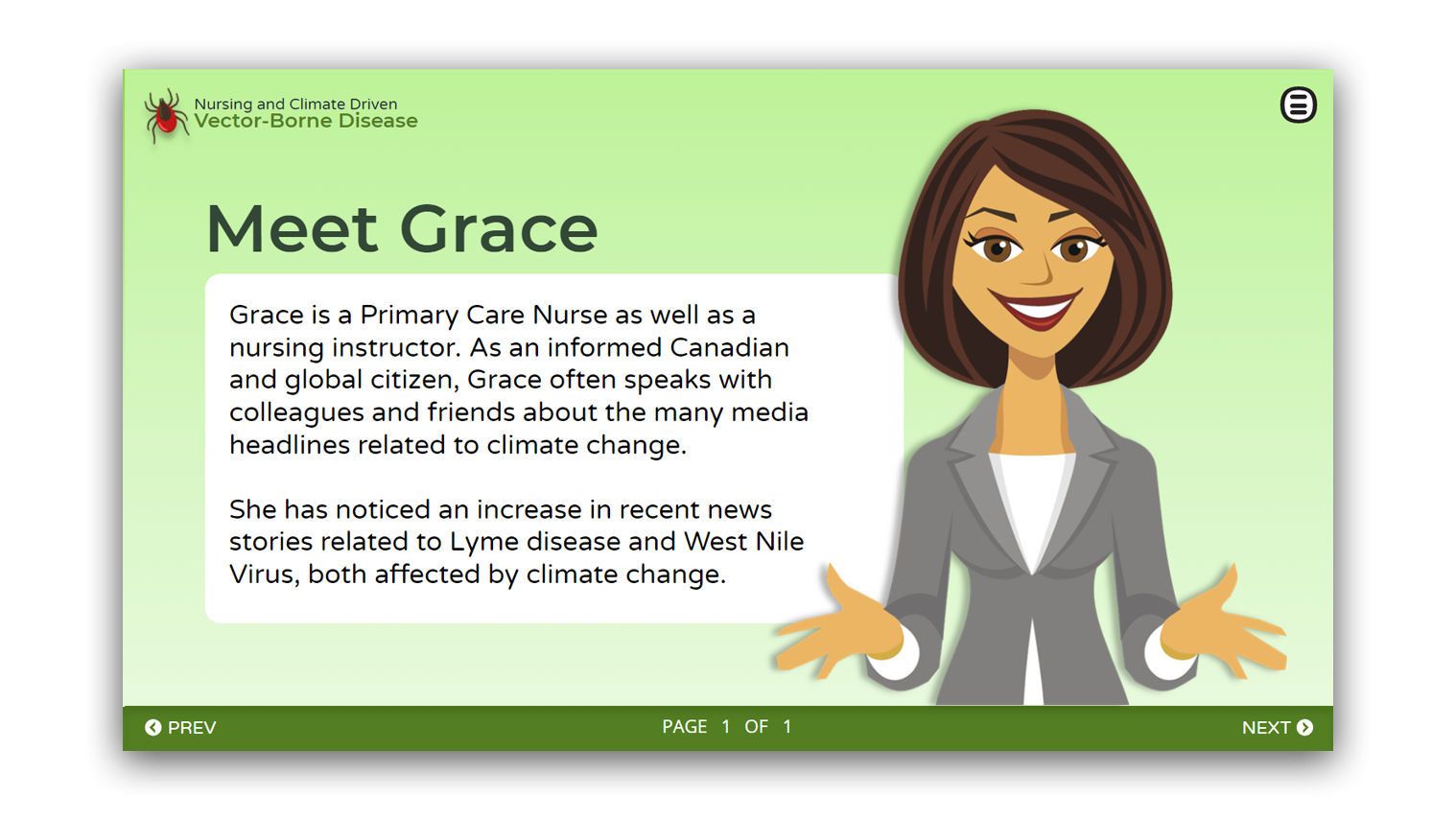
In Module 1, you will meet Grace, a primary care nurse and nurse educator, who designs a professional learning plan to develop her understanding of climate change and its relationship to health. You will follow her learning journey.
Module 1 focuses on the importance of ecoliteracy to the practice of nursing, the science behind climate change, and the anticipated changes to climate both nationally and globally through the remainder of the 21st century. Traditional knowledge informs a sustainable approach, which will be crucial to control the rate and extent of climate change we can expect. This module also explores the impact of climate change on vector-borne diseases (VBDs), to set the stage for the remaining modules of the CASN Climate-Driven Infectious Disease e-resource. The module concludes with a look at specific actions nurses can take with respect to climate change.
Learning outcomes for this module:
By the end of this module, the learner will be able to:
- Describe climate change science and key concepts, including indicators, current changes observed, projected changes
- Describe the emerging driving factors of climate change, and sustainable efforts to reduce the impact of climate change in Canada and within the global context (Guideline learning outcome 1.2)
- Explain the relationship between VBD and climate change, as situated within the broader context of climate driven water-borne, food-borne, and zoonotic infectious diseases in Canada
- Understand the Indigenous traditional knowledge and practices in relation to the natural environment and impacts associated with climate change and VBD (Guideline learning outcome 1.4)
- Describe the nursing roles associated with the levels of prevention, and the relevant public health policy and legislation associated with VBD in Canada

In Module 1, you will meet Grace, a primary care nurse and nurse educator, who designs a professional learning plan to develop her understanding of climate change and its relationship to health. You will follow her learning journey.
Module 1 focuses on the importance of ecoliteracy to the practice of nursing, the science behind climate change, and the anticipated changes to climate both nationally and globally through the remainder of the 21st century. Traditional knowledge informs a sustainable approach, which will be crucial to control the rate and extent of climate change we can expect. This module also explores the impact of climate change on vector-borne diseases (VBDs), to set the stage for the remaining modules of the CASN Climate-Driven Infectious Disease e-resource. The module concludes with a look at specific actions nurses can take with respect to climate change.
Learning outcomes for this module:
By the end of this module, the learner will be able to:
- Describe climate change science and key concepts, including indicators, current changes observed, projected changes
- Describe the emerging driving factors of climate change, and sustainable efforts to reduce the impact of climate change in Canada and within the global context (Guideline learning outcome 1.2)
- Explain the relationship between VBD and climate change, as situated within the broader context of climate driven water-borne, food-borne, and zoonotic infectious diseases in Canada
- Understand the Indigenous traditional knowledge and practices in relation to the natural environment and impacts associated with climate change and VBD (Guideline learning outcome 1.4)
- Describe the nursing roles associated with the levels of prevention, and the relevant public health policy and legislation associated with VBD in Canada

